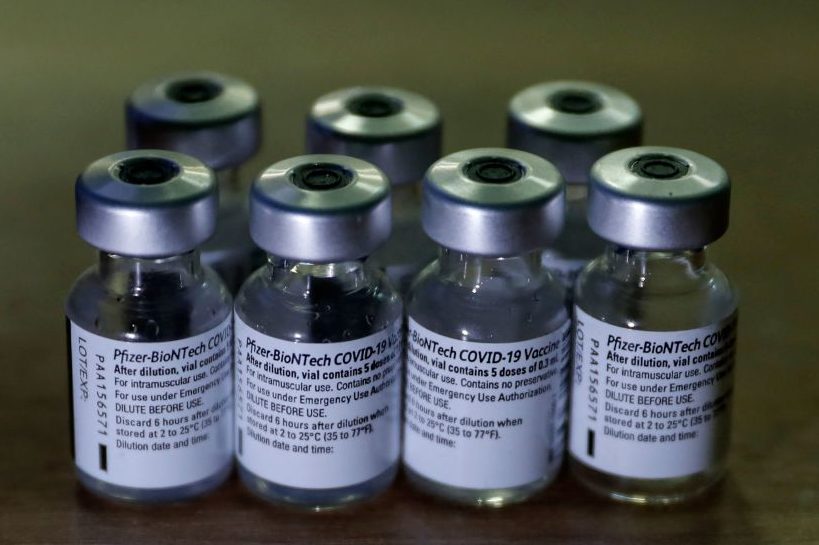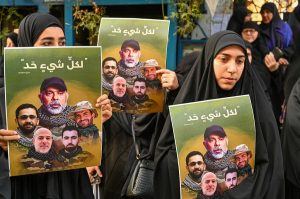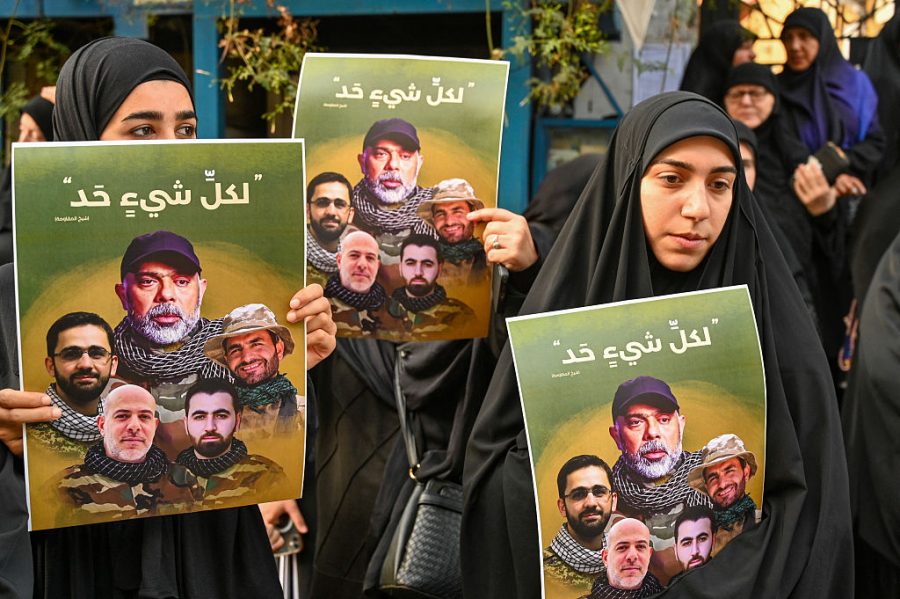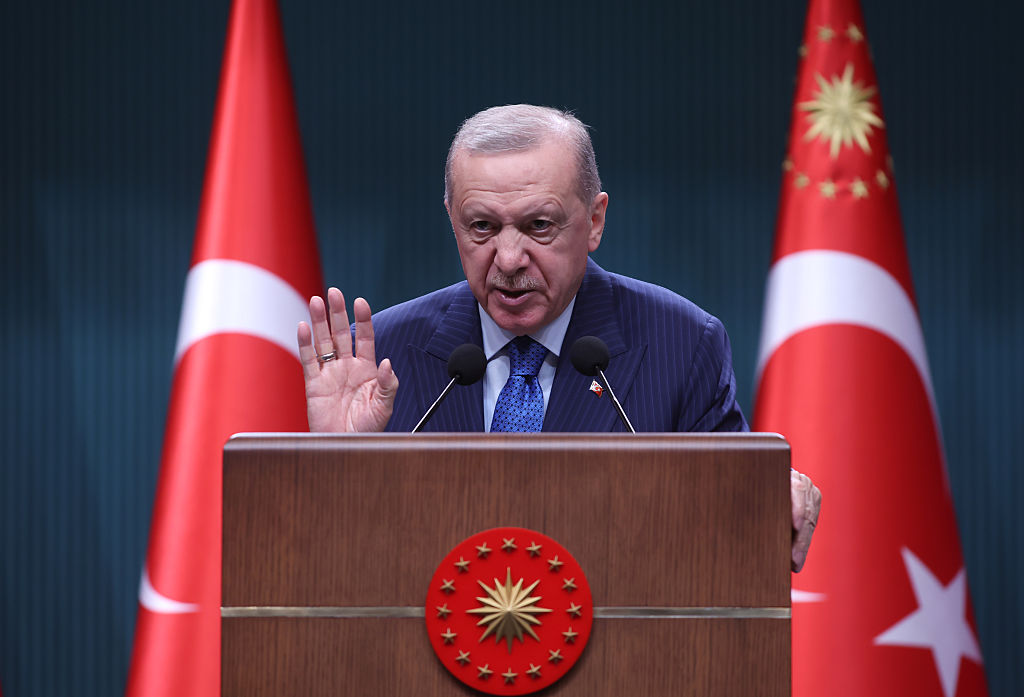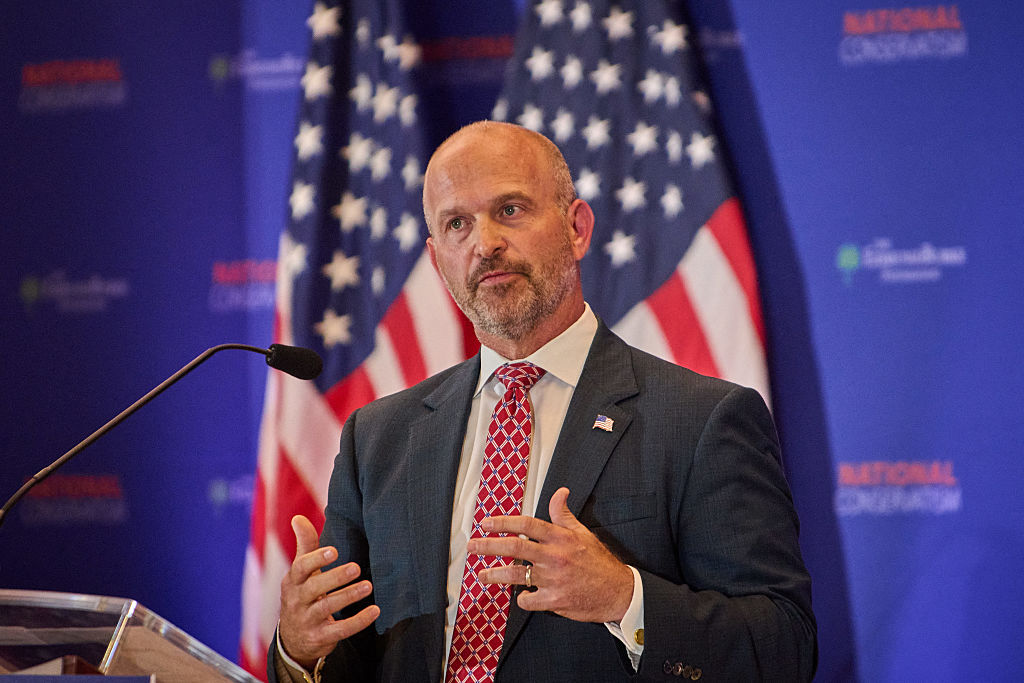Sipping an iced coffee in a Tel Aviv café this week, it felt like it was 2018 again. Nobody wears a face mask, tables are close together and there’s no hand gel in sight. Very few people one meets even talk about COVID-19. Though a tiny increase in the occurrence of the Indian variant has been noted in recent days, Israel is rightly proud of its vaccination and mass immunity success.
It is therefore surprising that Israel’s offer to advance over one million Pfizer vaccines to the Palestinians has been rejected by the Palestinian Authority only hours after they initially accepted the deal. Many countries are still grappling with the ethical dilemma of when to offer their own supply of vaccines abroad to help others; few are expecting such offers to be rejected.
Back in January, as Israel was vaccinating its citizens at an impressive rate, some commentators suggested it should also be vaccinating Palestinians in the West Bank. Israel pointed out that the 1993 Oslo Accords agreed Palestinians would run their own healthcare system. Even the Palestinian director-general for public health was clear: ‘We haven’t asked for any vaccine from Israel,’ he said. ‘It’s our responsibility to procure and roll-out the COVID vaccine and all other vaccines. That’s been the case going back years.’
Yet even Britain squabbled with their friends in Europe over how to share our limited supply of the life-saving liquid, some in the British media showed no embarrassment in erroneously insisting that Israel should divert vaccines from its own population to those with whom it is in an ongoing conflict.
When it was announced on Friday that Israel would indeed send up to 1.4 million vaccines to the Palestinians, many complained that this rare example of mutual cooperation had gone mostly unnoticed by previously vocal critics. Israel is now vaccinating 12-15 year olds, having fully vaccinated around 57 percent of its 9.3 million population. Thus the country felt confident it could now assist the Palestinians, only around 11 percent of whom have received at least one dose.
The deal specified that Israel’s stock of Pfizer vaccines, currently nearing their expiry date, would be sent to the Palestinians. In return, the PA would give Israel its batch of vaccines when they are delivered in the fall.
Wasting no time, Israel dispatched the first 90,000 doses to the Palestinian Authority just hours after the deal was agreed. But those vaccines never made into Palestinians’ arms. Once they arrived, the PA rejected them, arguing that the vaccines don’t meet their standards. Some were due to expire in just 13 days, but were, of course, still viable if administered in that timeframe.
These are the very same vaccines Israelis have used to break free from the pandemic. An incredulous statement from the Israeli health ministry said the vaccines delivered to the Palestinians are ‘identical in every way to the vaccines currently being administered to Israel’s citizens.’
As ever, it is hard to know the real reasons behind the Palestinian Authority’s U-turn, but the health of its people cannot have been at the top of its agenda. Millions in the UK have benefited from Pfizer’s gold-standard vaccine, even when the doses were close to expiry. My own first dose was administered some months ago in London, as the empty vaccination center was closing up for the day. The doctor who swept me into her cubicle told me that three minutes later my shot would need to be tossed in the trash.
Israel says the short shelf life of the vaccines it was sending had been known to the PA when the deal was struck. The initial batch of 90,000 was the closest to expiry, with subsequent batches due to expire some weeks later. Perhaps the idea that this deal represented ‘normalization’ with Israel was too much for some on the Palestinian side, whose reaction gave their leaders cold feet.
Aside from passing up the opportunity to vaccinate 90,000 people in the next two weeks — and over a million before the end of the summer — the PA may also struggle to allay fears of corruption in how it distributes its vaccines. Convincing people to be vaccinated will also not be easy. According to last week’s poll by the Palestinian Center for Policy and Survey Research, only 40 percent of Palestinians are willing to accept a vaccine when one is available, and 35 percent are unwilling to get vaccinated at all.
This is exactly the sort of deal that richer countries around the world are being encouraged to make. Redistributing surplus vaccines is essential if we are to help poorer societies out of the pandemic sooner. But that can only work if they accept the help when it is offered.
This article was originally published on The Spectator’s UK website.



